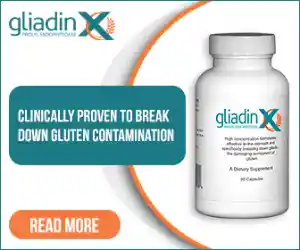-
Welcome to Celiac.com!
You have found your celiac tribe! Join us and ask questions in our forum, share your story, and connect with others.
-
Get Celiac.com Updates:Support Our Content
Honees Cough Drops- gluten-free or no?
-
Get Celiac.com Updates:Support Celiac.com:
-
Recent Activity
-
- knitty kitty replied to Jordan Carlson's topic in Post Diagnosis, Recovery & Treatment of Celiac Disease7
Getting sick much more often
Hello there! @Jordan Carlson , you said "Now the last 3 ish years I have been sick more than I ever have been in my life. Could it be my immune system was so tired/fatigued prior to diagnosis that it just wouldnt turn on anymore? And now that my stress and inflammation is down its functioning stronger?" I think you may have that backwards. Your... -
- Jordan Carlson replied to Jordan Carlson's topic in Post Diagnosis, Recovery & Treatment of Celiac Disease7
Getting sick much more often
@trents I do take all the recommended vitamins and excersize regularly. Basically do all things labeled as a healthy lifestyle haha. Thats why I was thinking more this is my immune system now having the energy to fight viruses rather than being too stressed out as I have heard that it is a common thing when your body is over stressed due to underlying autoimmune... -
- trents replied to Jordan Carlson's topic in Post Diagnosis, Recovery & Treatment of Celiac Disease7
Getting sick much more often
Jordan Carlson, Wheat flour is fortified with vitamins ("enriched") where as gluten free facsimile flours are not. So when you eliminate wheat flour from your diet you may lose a significant source of nutrition. At the same time, gluten-free prepackaged foods are practically devoid of vitamins and minerals, consisting mostly of highly processed high... -
- Jordan Carlson replied to Jordan Carlson's topic in Post Diagnosis, Recovery & Treatment of Celiac Disease7
Getting sick much more often
Hey there @trents. I wish I could edit my original post. I am talking about getting a cold way more often, not gluten poisoning. -
- trents replied to Jordan Carlson's topic in Post Diagnosis, Recovery & Treatment of Celiac Disease7
Getting sick much more often
Reply to Sanna King: As you have withdrawn gluten from your diet you have lost all tolerance to it that you had when consuming it on a regular basis. This is normal. Not everyone experiences it but it is common. It has been my experience as well. When I was consuming gluten every meal every day for years after the onset of celiac disease but before diagnosis...
-













Recommended Posts
Create an account or sign in to comment
You need to be a member in order to leave a comment
Create an account
Sign up for a new account in our community. It's easy!
Register a new accountSign in
Already have an account? Sign in here.
Sign In Now